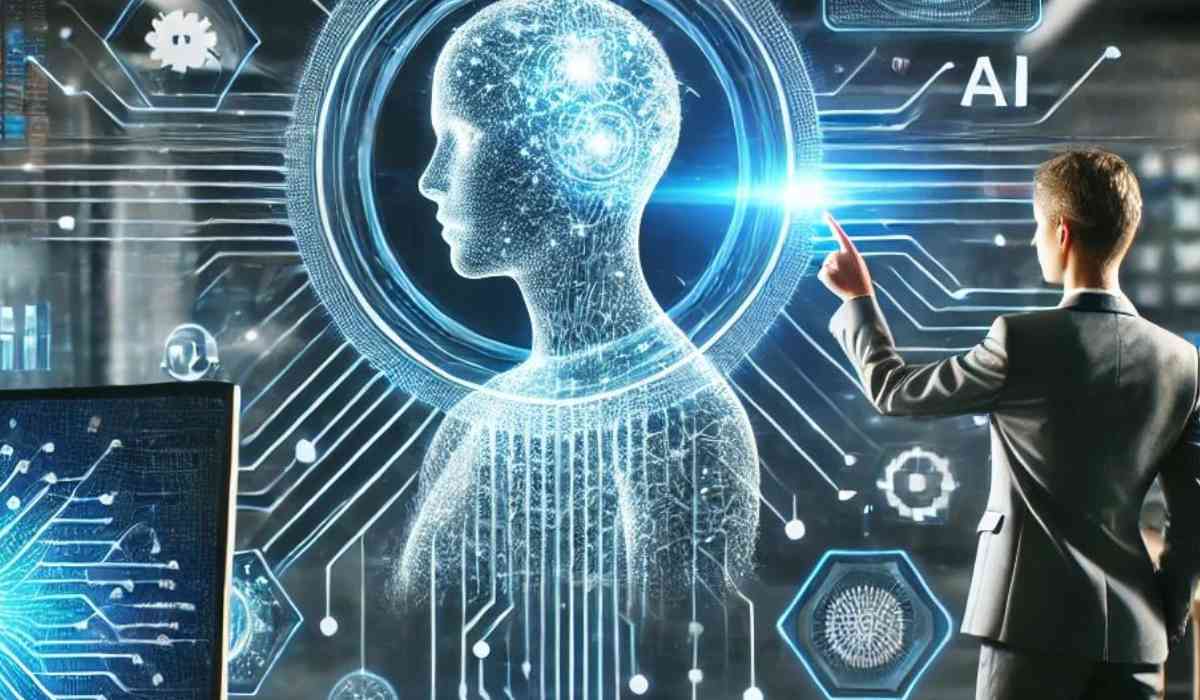Artificial Intelligence (AI) is revolutionizing industries worldwide, creating a surge in demand for professionals equipped with AI expertise. As we approach 2025, the AI job market is poised for significant growth, offering diverse career opportunities for individuals with the right skills and knowledge.

The Growing Demand for AI Professionals
The integration of AI into various sectors has led to an increased need for skilled professionals who can develop, implement, and manage AI technologies. According to recent reports, the demand for AI-related roles is expected to rise substantially by 2025, with employers seeking experts in machine learning, data science, and AI engineering.
Top AI Jobs to Watch in 2025
Here are some of the most sought-after AI positions anticipated to dominate the job market in 2025:
1. AI Engineer: AI Engineers are responsible for creating, testing, and deploying AI models and systems. They possess a deep understanding of programming languages, algorithms, and data structures. The average base salary for an AI Engineer is approximately $111,913.
2. Machine Learning Engineer: Specializing in designing and developing machine learning systems, these engineers work on algorithms that enable machines to learn and make decisions. The average base salary is around $122,019.
3. Data Scientist: Data Scientists analyze complex data to derive actionable insights, often utilizing AI and machine learning techniques. They play a crucial role in decision-making processes across various industries. The average base salary is about $116,946.
4. AI Research Scientist: These professionals focus on advancing AI technologies through research and experimentation, contributing to the development of innovative AI solutions. Salaries for AI Research Scientists can range from $136,000 to $225,000 annually.
5. AI Product Manager: AI Product Managers oversee the development and deployment of AI-driven products, ensuring they meet market needs and organizational goals. They bridge the gap between technical teams and business stakeholders. Expected salaries range from $112,841 to $139,861 annually.
6. Robotics Engineer: Robotics Engineers design and build robots and robotic systems, often incorporating AI to enhance functionality. This role combines mechanical engineering, electrical engineering, and computer science. The average base salary is approximately $112,163.
7. AI Ethics Officer: As AI technologies become more prevalent, ensuring their ethical use is paramount. AI Ethics Officers develop guidelines and policies to promote responsible AI development and deployment. Salaries for this role range from $120,000 to $180,000 annually.
8. Cybersecurity Analyst with AI Expertise: With the increasing use of AI in cybersecurity, analysts who can leverage AI to detect and prevent threats are in high demand. Expected salaries range from $120,000 to $200,000 annually.
9. AI Solutions Architect: AI Solutions Architects design and implement AI solutions tailored to an organization’s needs, ensuring seamless integration with existing systems. They play a pivotal role in translating business requirements into technical solutions.
10. Prompt Engineer: A relatively new role, Prompt Engineers specialize in crafting and optimizing prompts to enhance AI model outputs, particularly in natural language processing applications.
Skills and Qualifications for AI Careers
To excel in these AI roles, individuals should develop a robust skill set that includes:
• Programming Languages: Proficiency in languages such as Python, R, and Java is essential for developing AI models and algorithms.
• Mathematics and Statistics: A strong foundation in linear algebra, calculus, probability, and statistics is crucial for understanding and creating machine learning models.
• Data Analysis: The ability to analyze and interpret complex datasets is vital for data-driven decision-making.
• Machine Learning and Deep Learning: Knowledge of machine learning frameworks (e.g., TensorFlow, PyTorch) and deep learning techniques is fundamental for AI development.
• Problem-Solving Skills: Critical thinking and problem-solving abilities are necessary to address challenges in AI projects.
• Communication Skills: Effective communication is important for collaborating with cross-functional teams and conveying complex AI concepts to non-technical stakeholders.
Educational Pathways and Certifications
Pursuing a career in AI typically requires a strong educational background in computer science, engineering, or related fields. Advanced degrees, such as a Master’s or Ph.D., can be advantageous, especially for research-oriented roles. Additionally, obtaining certifications in AI and machine learning can enhance one’s credentials. Some reputable certifications include:

• Google AI Certification: Offered by Google, this certification covers various aspects of AI and machine learning.
• Microsoft Certified: Azure AI Engineer Associate: This certification focuses on implementing AI solutions on Microsoft Azure.
• IBM AI Engineering Professional Certificate: Provided by IBM, this program offers comprehensive training in AI engineering.
The Future of AI Employment
The AI job market is not limited to the technology sector alone. Industries such as finance, healthcare, manufacturing, and retail are increasingly adopting AI technologies, leading to a broader spectrum of employment opportunities. Notably, banks are becoming attractive employers for tech talent, rivaling traditional tech companies. Major banks are aggressively hiring tech experts and participating in events like hackathons to appeal to tech graduates.
However, the rapid advancement of AI also raises important questions about the future of human roles in AI-driven industries. While AI automates certain tasks, it cannot replace the critical thinking, creativity, and ethical decision-making that humans bring to the table. This underscores the necessity for collaboration between artificial intelligence and human intelligence to achieve sustainable growth in the AI ecosystem.
Preparing for AI Careers: Steps to Get Started
If you’re considering a career in AI, here’s a roadmap to guide you:
1. Educational Foundation:
• Pursue a degree in computer science, data science, engineering, or a related field.
• Take specialized courses in machine learning, natural language processing, or robotics.
2. Build a Portfolio:
• Work on AI-related projects that showcase your skills.
• Create a GitHub repository to display your coding and problem-solving capabilities
3. Obtain Certifications:
• Enroll in reputable online AI and machine learning certification programs.
• Some well-known platforms include Coursera, edX, and Udacity.
4. Gain Practical Experience:
• Apply for internships or entry-level positions to gain hands-on experience.
• Participate in hackathons and coding challenges to sharpen your skills.
5. Stay Updated:
• Follow the latest AI research and industry trends.
• Subscribe to AI-related publications, join communities, and attend tech conferences.
6. Leverage Networking:
• Connect with professionals in the field via LinkedIn or AI forums.
• Join AI-specific organizations and groups to build a network and find mentorship opportunities.
Challenges and Opportunities in AI Recruitment
While the demand for AI talent is high, recruiting suitable candidates remains a challenge for employers. Many organizations are grappling with a shortage of skilled professionals who can meet the technical and strategic demands of AI roles. This gap highlights an opportunity for individuals to upskill and align themselves with industry requirements.
Additionally, organizations are diversifying their hiring strategies by leveraging AI job boards and portals to identify top talent. Startups and tech giants alike are also investing in AI talent acquisition programs to ensure they remain competitive in the evolving landscape.
AI in the Global Job Market
AI’s impact on employment is a global phenomenon. Countries like the United States, China, and India are at the forefront of AI adoption, with governments and private sectors alike investing heavily in AI research and development. This global trend has led to increased competition among nations to attract and retain top AI talent, offering lucrative incentives and career opportunities.
For instance, China aims to become the global leader in AI by 2030, significantly boosting its recruitment efforts. Similarly, the U.S. continues to lead in AI research, while India has emerged as a hub for AI-related services, making it a key player in the global AI job market.
AI and the Human Touch: A Symbiotic Relationship
Despite AI’s ability to process data and perform tasks with incredible efficiency, its success relies heavily on human intelligence. From designing algorithms to ensuring ethical use, humans play a pivotal role in guiding AI systems toward meaningful outcomes. This collaboration between human and artificial intelligence ensures that AI-driven advancements benefit society holistically.
With inputs from agencies
Image Source: Multiple agencies
© Copyright 2024. All Rights Reserved Powered by Vygr Media.





















